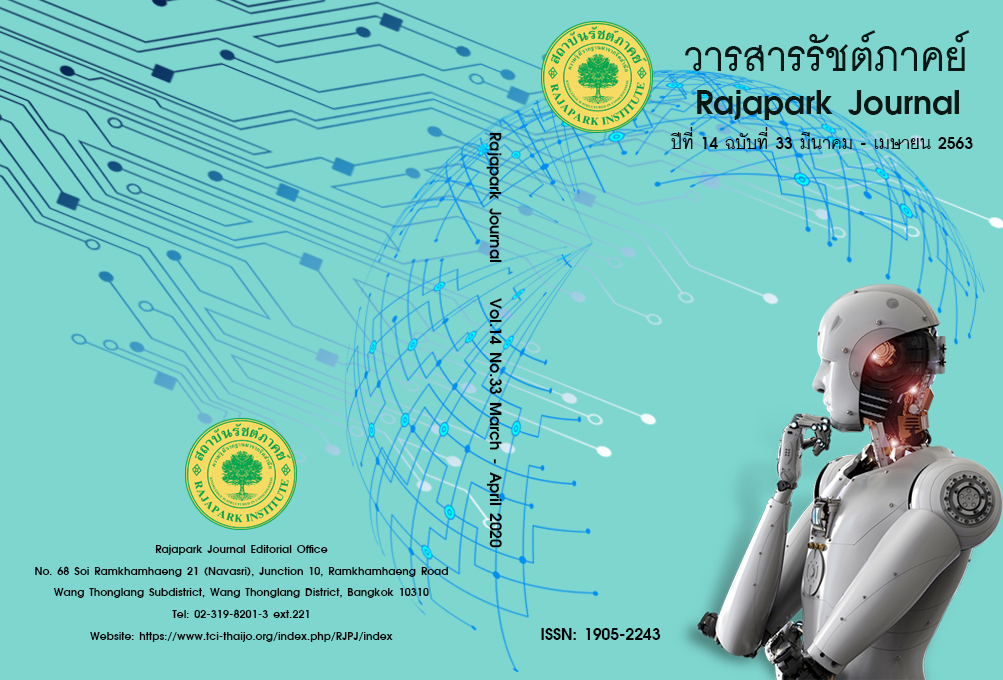Government policy to promote the quality of life of the elderly in Bangkok Metropolis
Main Article Content
Abstract
This research aims to 1) study government policies that affect the quality of life of the elderly between the ages of 60 and 80 who live in Bangkok Metropolis; and 2) find ways to promote the quality of life of the elderly by using the qualitative research model. Data were collected from various related documents. In-depth interview and group conversation were used. A sample was selected from 36 cases, 6 presidents from the 6 elderly clubs and 30 members of the elderly in the Saphan Sung area, were included as a sample. The results showed that: Government policies have an effect of promoting the quality of life of the elderly. The elderly person needs the government to promote the quality of life to meet their basic needs, in order to have a good quality of life, so they can be self-reliant to prepare for quality aging. To do so, is to develop the system and local personnel to have knowledge and good understanding about the elderly. There should be activities for the elderly in the community to exchange knowledge, and the network of the elderly should be integrated together from various sectors, including government, private sectors and the people sector. The elderly should be informed about the benefits they will receive according to the law, in order to support the increasing number of elderly. The government should focus on the quality of the elderly to be valuable to society and the nation. And when considered in each aspect, it was found that the elderly agreed with the government's policy to promote the quality of life of the elderly, including 1) Transportation 2) Public Health 3) Public Relations 4) Increasing service points for the elderly and 5) safety.
Article Details
Views and opinions appearing in the Journal it is the responsibility of the author of the article, and does not constitute the view and responsibility of the editorial team.
References
Bangkokbiznews. (2020). NESDB suggests working age trends to reduce Opposite the aging population.
Retrieved January 19, 2020, from https://www.bangkokbiznews.com/news/detail/862069
Chewasopit, W. (2019). Aging society: The changed marketing factors. Journal of MCU Nakhondhat, 6(1),
-54.
Chuto, N. (2008). Qualitative analysis. (4th ed). Bangkok: Print profile.
CONSTITUTION OF THE KINGDOM OF THAILAND (B.E. 2560 (2017))
Department of Elderly Affairs. (2009). National Plan for Older Persons No. 2 (2002-2021) 1st edition.
Retrieved January 19, 2020, from http://www.dop.go.th
Department of Elderly Affairs Ministry of Social Development and Human Security. (2019). Measures to drive the
agenda National, Elderly Society (revised version). (2nd ed.). Bangkok: Amarin Printing.
Isranews Agency. (2020). NESDB pointed out that for another 20 years, the Thai population decreased by 2
million people. Retrieved January 19, 2020, from https://www.isranews.org/index.php
Komchadluek newspaper. (2019). The Thai government responds to the national pension ... Transfer to
,000/Month. Retrieved November 14, 2019, from https://www.komchadluek.net/news/scoop/398917
Komchadluek newspaper. (2020). Roadmap for the Elderly Society. Retrieved January 19, 2020, from
https://www.komchadluek.net/news/scoop/411272
Office of Social Development Bangkok. (2015). Information of the elderly clubs in the 50 district offices of
Bangkok. Bangkok: Author.
Phromphak, C. (2013). Aging society in Thailand. The Secretariat of the Senate, 3(16), 1-19.
Policy Statement of the Prime Minister General Prayut Chan-ocha, has announced the policy to the National
Legislative Assembly. On September 12, 2014.
Thakrairach, P. (2016). Taking Care of the Older Persons with Local Wisdom. Journal of MCU Social Sciences
Review, 5(3), 217-230.
The Act on the Elderly, B.E. 2546 (2003) Amendment No. 2 B.E. 2553 (2010) and Amendment No. 3 B.E. 2560
(2017)
Thomas, R. D. (1978). Understanding Public Policy (3rd ed.). New York: Englewood cliffs Prentice-Hall.


